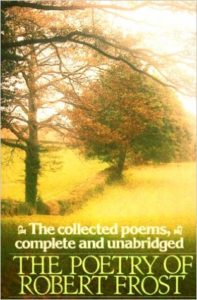
Answer: Robert Frost is a pastoral poet but he has not followed the conventions and traditions of pastoral poetry. He has invented his own methods of composing pastoral poetry, and has been successful in doing so. As a result of his inventions he has become a pastoral and a modern poet at the same time.
In order to understand Frost’s pastoral-ism we need to understand what pastoralism is. According to M.H. Abram’s A Glossary of Literary Terms, the term pastoral has been expanded in various special ways. William Empson, for example, identifies as pastoral any work which contrasts simple and complicated life, to the advantage of the former: the simple life may be that of the shepherd, the child, or the working of man and it is used as an oblique way to criticize the class structure of the society. Empson thus applies the term to works ranging from Marvell’s poem “The Garden” to “Alice in Wonderland” and the proletarian novel. Other critics apply the term “pastoral’ to any work which envisions a withdrawal from ordinary life to a place apart, close to the elemental rhythms of nature, where a man achieves a new perspective on life in the real and complex world.
According to NTC’s Dictionary of Literary Terms, “Rather than presenting a realistic picture of the hardships of rustic life, conventionalized pastorals feature love-lorn shepherds and cold-hearted shepherdesses leading idyllic artificial existences, singing and wooing, and moving about in idealized settings with a few ornamental flowers, a few sheep, and perhaps a bubbling brook”.
Frost’s pastoralism is not an escape from reality. Many readers may assume that Frost’s pastoralism is an attempt to escape from the real world to an ideal world. He retreats from the city life to rural life to examine the city life more deeply. Pastoral life is a context for him to discover the order that lies beneath the chaotic complexity of city life. Rural life is an artistic perspective for him from where he can analyze the complicated and problematic urban life. He has considered rural life as the standard to evaluate the city life. We need to know the special merits offered by pastoral vision to evaluate Frost’s modernity. We also need to know that a retreat from the modern urban life to the rural world provides the poet with a subtle analysis and evaluation of the modern world.
The pastoral form is suitable for the quality of Frost’s vision. According to a critic, the pastoral form with its stress on two utterly contrasted ways of life, was peculiarly amenable to the sense of duality which is an essential part of Frost’s poetic vision. In his poems, contrasts—human life and mechanical power, living nature and the insensate toil, light and darkness, good and evil—are frequently set side by side. The pastoral mode is a form which adapts itself easily to analogy. For example, “Stopping by Woods on a Snowy Evening” is the best example of Frost’s creation of a new kind of symbolism out of outmoded, conventional pastoralism. Instead of interpreting the scene, he uses it as a medium through which to view reality.
We find realistic pastoralism in Frost’s poetry. Pastoral elements are predominant there, but readers should not be confused about them; they should know that though there is prevalence of pastoral elements, he is realistic in his poetic vision and sensibility.
Pastoralism is usually connected with romantic vision—the common-place objects, scenes are idealized, glorified and tinged with imagination. Though Frost has a strong passion for pastoralism, realism forms the basis of his vision and art. His poetry is loaded with suggestively. In terms of form, Frost possessed a classicist’s devotion and in the quality of life, a realist’s interests.
Frost is both a pastoral and a modern poet. Though we find the predominance of pastoral elements in his poetry, we cannot call him an outdated poet because modern elements are also prominent in his poetry. He shows a strong devotion and keen interest in rural life but none the less he shows a great passion and interest in modern elements. His works include the nostalgic, prove the pastoral pleasures and savor the contemplatative calm. The spirit of his works is comparable to that of the English Georgians. He also explores the dreadful aspects of man’s existence in the modern world. He is equally successful in treating pastoral as well as modern elements.
To conclude, Frost is a pastoral poet with a difference. Pastoral life is a context for him to examine the city life more deeply and to discover its complexity in a subtle way. Rural life is an artistic perspective for him to evaluate the modern urban life. Though there is predominance of pastoral elements in his poetry, Frost is realistic in his poetic vision and sensibility. He is modern in his spirit. A critic’s comment is suitable here “At his most intense, Frost is as close to the panicky edge of sensibility as Eliot. The kind of mind at work in his poetry is neither that of a plain new England farmer nor that of the romantic rediscovered of the land. It is what Yeats called, the modern mind in search of its own meaning.”



